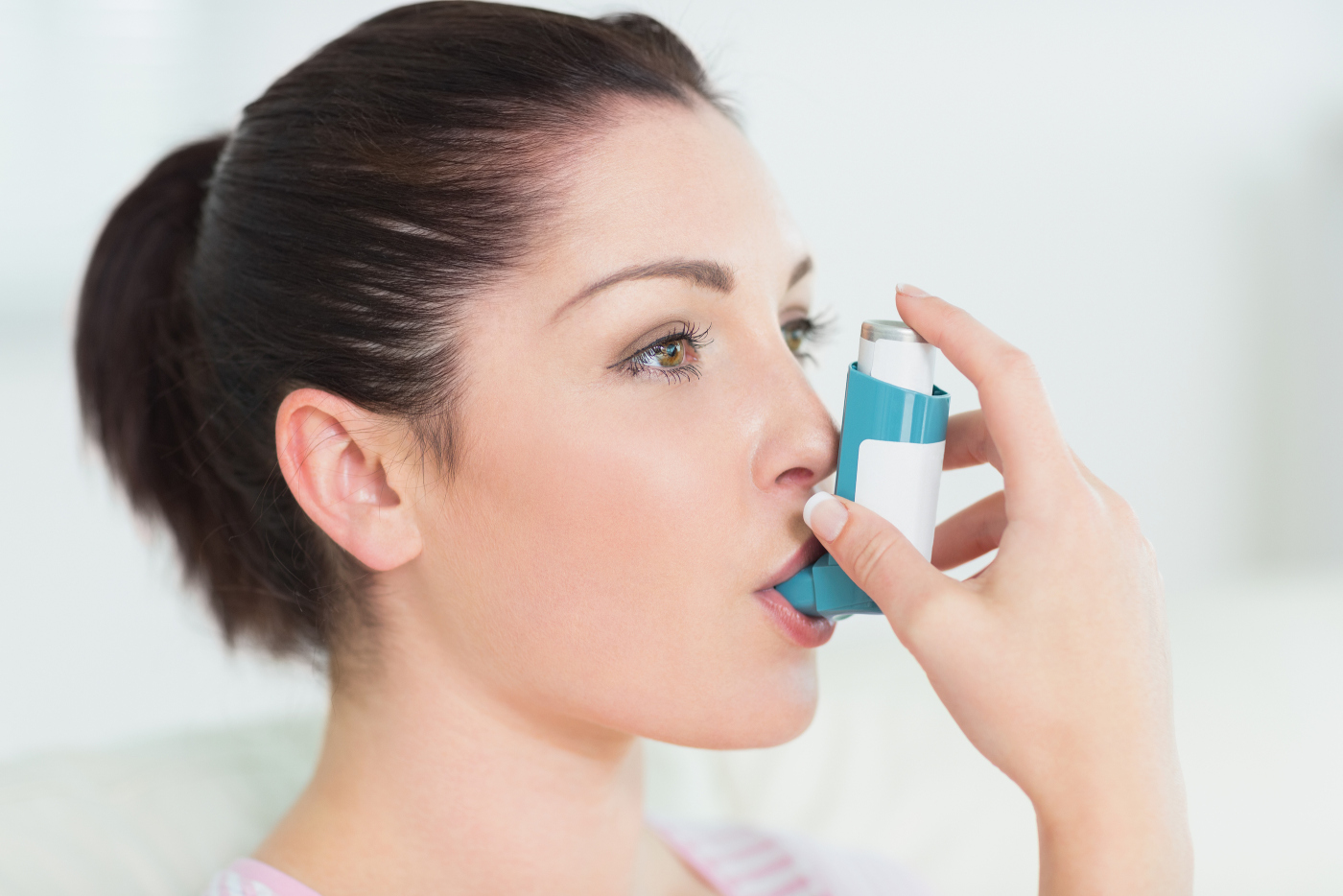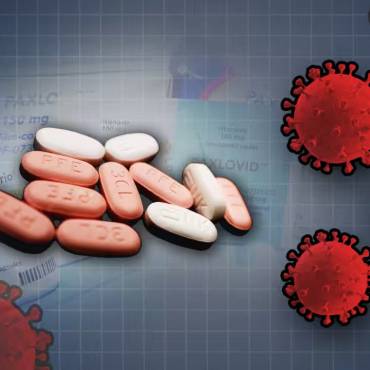Ever faced problems like wheezing, chest tightness, breathing problems and coughing, most frequently during the night and the early morning. If so, it may be a sign of asthma. In case of asthma, the inside walls of airways are swollen and narrow, resulting in less air passing between the lungs. In asthma, airways are blocked or narrowed hence preventing oxygen from entering the blood. People who suffer from this chronic condition are said to be asthmatic. Asthma is caused due to various factors, allergy being one sometimes, and asthma caused by allergy is known as Allergic Asthma.
What is Allergic Asthma?
Our immune system protects us from bacteria and viruses but the immune system gets so vigilant in the people with allergies. About 90% of kids with childhood asthma suffer with Allergic Asthma. Being the most common type of asthma, it is caused by allergy triggers known as allergens. Inhaling specific substances like pollen, mites or molds trigger asthma and they are termed as allergens. When our body encounters an allergen, it stimulates IgE antibodies which in turn trigger allergic reactions. They cause the release of chemical histamine, which results in swelling and inflammation and person suffers from the symptoms like runny nose, sneezing and itchy eyes.
Symptoms of Allergic Asthma
Whether you have allergic asthma or non-allergic asthma, the symptoms of asthma are generally the same and may include any or all of the following:
- Coughing
- Wheezing
- Shortness of breath
- Rapid breathing
- Tightening of the chest
Medications
Asthma is an incurable and recurrent disease. However, with good treatment and management, the patient can recoup back to normal life. If you suffer from asthma, you should consult a doctor. You will also be prescribed medications which will help manage your asthma. Below mentioned are some common drugs that are used to treat allergic asthma which is available in various forms- pills, injections and inhalers.They are easily taken up by the patient, but in case a patient finds difficulty, then they are administered using machines like nebuliser. This machine creates a mist of medicine, which is then taken in through a mask or mouthpiece. They are more commonly used in an emergency situation, for example in a hospital or a doctor’s surgery.
Some common asthma medications used are:
1. Inhaled corticosteroids
They are known as controller medications. These corticosteroids should not be confused with the steroids taken by the athletes as they both are different. They work by blocking the inflammation response in the lungs and should be taken consistently so that it decreases inflammation over time. Inhaled corticosteroids can’t stop symptoms once they get started but they can stop recurrence if taken as directed. These corticosteroids are taken using an inhaler, hence they are called inhaled corticosteroids. They are considered the most suitable and most effective long term usage medication for control of asthma. Common inhaled corticosteroids include Fluticasone, Budesonide, Beclomethasone, Ciclesonide and Mometasone. Some drugs are sold in combinations such as Fluticasone and Salmeterol. Inhaled steroids come in three forms: metered dose inhaler (MDI), dry powder inhaler (DPI), and nebulizer solutions.
2. Oral corticosteroids
Oral corticosteroids are generally used in the short term for serious asthma attacks. If the symptoms still prevail despite a controller medication, your doctor might ask to switch on oral steroids for four to five days. Oral steroids, such as prednisone take 4-6 hours to take effect.
3. Theophylline
Theophylline is used to control inflammation and is categorised as a bronchodilator. They act by dilating the airways, hence increasing the airflow and making breathing easier. Theophylline is used in mild-to-moderate persistent asthma. It can be inhaled alone or in combination with an inhaled corticosteroid. They are also available in pill form. The least amount of medicine that controls the asthma symptoms is used.
4. Short-acting beta agonists
These drugs are also known as rescue medications. These drugs act within minutes to quickly resolve symptoms. They are bronchodilators. They do not control inflammation but they are good to impart relief in asthma attacks. These drugs relax the airways within 5 minutes and the effect lasts for 3 to 6 hours. Albuterol and related medications such as Maxair are available against this category in inhaled, pill, liquid, and injectable form. These drugs shouldn’t be used frequently (1-2 times a week or less).
5. Long-acting beta agonists
Like short acting beta agonists, this category also helps relieving the symptoms, but the effect lasts for almost double say 10 hours or more and is considered maintenance drugs. The long-acting bronchodilators are used to control of asthma and are used twice a day. Medications from this group are relatively new and therefore only two are currently available in US- Formoterol and Salmeterol. They should only be used in conjunction with inhaled steroids.
6. Antihistamines
Histamine is the main reason of airway inflammation. It is high in the airways of asthmatic patients. Antihistamines reduce inflammation by blocking the actions of histamine. They are shown to have bronchodilatory effects. In addition, it is also shown that antihistamines delay or prevent the development of asthma in children. Antihistamines are usually taken in combination with inhaled corticosteroids. Antihistamines shouldn’t be used chronically.
7. Omalizumab
Omalizumab is formulated specifically for treatment of allergic asthma. It works by binding to immunoglobulin E antibody produced in response to an allergen. It is used to treat severe allergic asthma only. This means the cases where there is reduced lung function as a result of the allergy or many severe asthma attacks despite treatment requires high-dose medicines. Omalizumab is administered via injections. It is not helpful for the patients with non-allergic asthma, because the onset is completely different than the allergic asthma.
8. Leukotriene receptor antagonists
Unlike corticosteroids, it acts on the career that causes inflammation. This class of drugs acts by binding to cysteinyl leukotriene (CysLT) receptors and blocks their activation hence preventing the asthma. It is administered to treat both types of asthma; allergic asthma as well as non-allergic asthma. Zafirlukast Pranlukast and Zileuton are common drugs used in US. This should be taken with utmost care in Exercise-induced asthma and Aspirin-intolerant asthma. They are generally used in treatment of mild asthma.
9. Allergy shots
Allergy shots are given to the patients whose symptoms of allergic asthma occur all year long or during a large part of the year. In this case, allergens are injected in the body. It is practised in the cases where asthma is getting hard to control with medicines alone. Allergy shots should be given only after careful skin testing for an allergy. Initially this treatment is done once or twice a week with a small amount of allergens. Later, the frequency and amount could be increased depending upon the severity of persistence. Allergy shots should be given very carefully because they come with the possibility of anaphylaxis (an acute allergic reaction to an antigen). Generally, the reaction occurs within 30 minutes after the shot; therefore it is recommended that you should stay at your doctor’s office for at least this amount of time.
All these medications are extremely powerful in curing asthma and are available in various forms- pills, inhaler, nebuliser etc. All these medicines have their own ways and procedure to follow and if safety measures are not followed, side effects could be fatal.
Also Read: Asthma: Prevention and Medication
Know anyone who’s suffering from a serious case of asthma, then please share this blog with them. Also, post comments in case you have any health queries.





